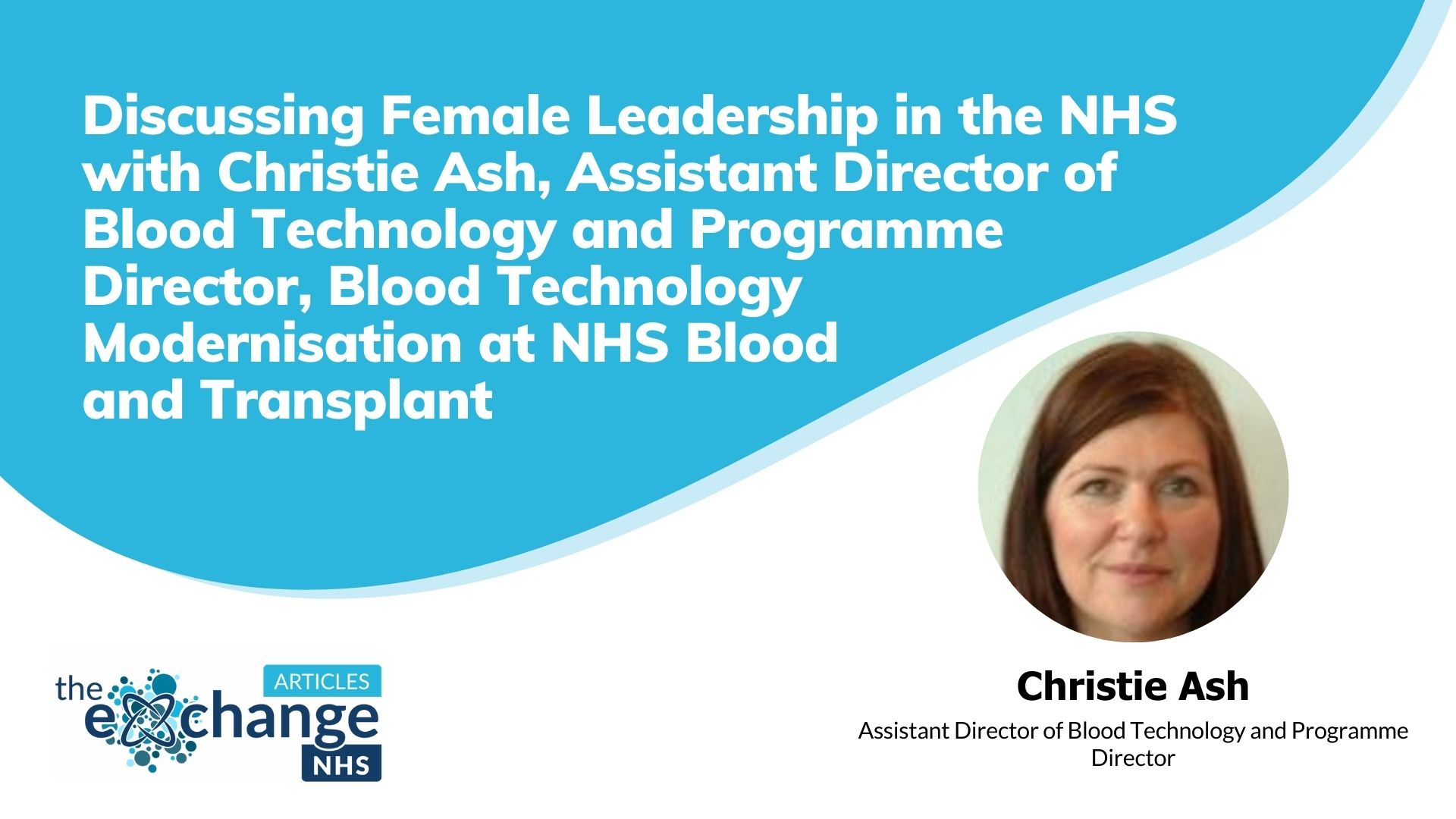
Christie Ash, Assistant Director of Blood Technology at NHS Blood and Transplant, gained an interest in assistive technology while working in Canada as an admin assistant in a university office for accessibility. After returning to the UK, she worked her way up in the IT industry, initially focusing on databases, then Business Analysis and eventually into programme management.
We spoke to Christie as part of a series of articles about female leadership in the NHS, discussing her career, challenges along the way and her advice for others.
Within tech careers, there is an ongoing debate about which is best – qualifications or experience? The answer, of course, is always highly subjective. Christie undertook a Master’s degree later on in her career – a move that gave her increased confidence to take her role one step further.
“I don’t think I would have even applied for the jobs that I applied for without that level of validation and confidence. Certainly when I went straight to work in the defence sector, which can be very male, I remember sitting at the table and thinking, I do have valid point because not only do I have a master’s degree, but I have a master’s degree from a defence college.”
This validation from qualifications can help many overcome feelings of imposter syndrome, as it helped Christie. However, she is keen to point out that, when hiring, experience is far more important to her than qualifications.
“I never look for qualifications, I always look for experience. It’s a personal thing, I don’t think you need to have the qualifications to do the job. But I needed to have the qualifications to feel that I could do the job.”
For Christie, who left school without qualifications , her graduation not only signified the next step in her career but also a huge achievement which she managed whilst also raising young children.
Christie’s long career has given her a wealth of experience in tech, and it is this experience that allows her to be the successful leader she is today.
“I think the reason I can do my job, and do my job well is because I know the whole software development lifecycle, as well as how to run a programme. I can ask questions such as, why is the testing taking so long? When they give me an answer to that, because I understand testing, I can lead discussions to finding a better solution or simply agree that things are going to have to shift left.”
However, Christie points out that the technical knowledge required to be a technical leader doesn’t necessarily have to be in-depth, but instead a grounding which gives oversight into the roles individuals are carrying out and a general idea of how a project should be completed.
“I do think the most important thing about leadership is the people side, and understanding teams and how teams work and how to create the best environment for people to do their job.”
In any career, there will be hurdles and difficulties that need to be faced. It is the lessons learned from those challenges that help in the future. For Christie, one of her biggest challenges was a period of time when she had a manager who she was incompatible with.
“We just didn’t gel, we saw things completely differently. It really, really knocked me back. What I should have done was left but I didn’t. I tried to stay and fix things, and then it just made it worse. That’s probably the only real knock I’ve had in my career. It had a huge impact, it took me a while to work through that and to figure out that actually, I am who I am, and I’m not perfect, and there are things that I can do and there are things that I can’t do.”
From this experience, Christie learned the importance of others – and yourself – allowing you to be imperfect. Christie’s episode under this manager taught her how not to be a manger, and she has taken away the significance of valuing employees, being an advocate and allowing them to make mistakes, but most importantly creating the space for people to succeed.
“One of the things that I recognise in myself is I have way too much of my self-esteem wrapped into my job. I know that it’s not healthy, and I can’t seem to change it. So having somebody when you worked hard, and had always done a really good job, to come along and say, ‘that’s not how I would do it, I don’t think you added any value’ was an awful experience.”
For those hoping to follow in Christie’s footsteps, her advice is to keep showing up and adding value. Before you reach a leadership position, you can still show leadership qualities by emulating those above you and displaying your capability for the added responsibility of a leadership role.
“It’s always about showing how you can add value and demonstrating that you can do that next job. I’ve always found I’m ready to move on when I look up a level and think, ‘Well, I could do that really easily.’”